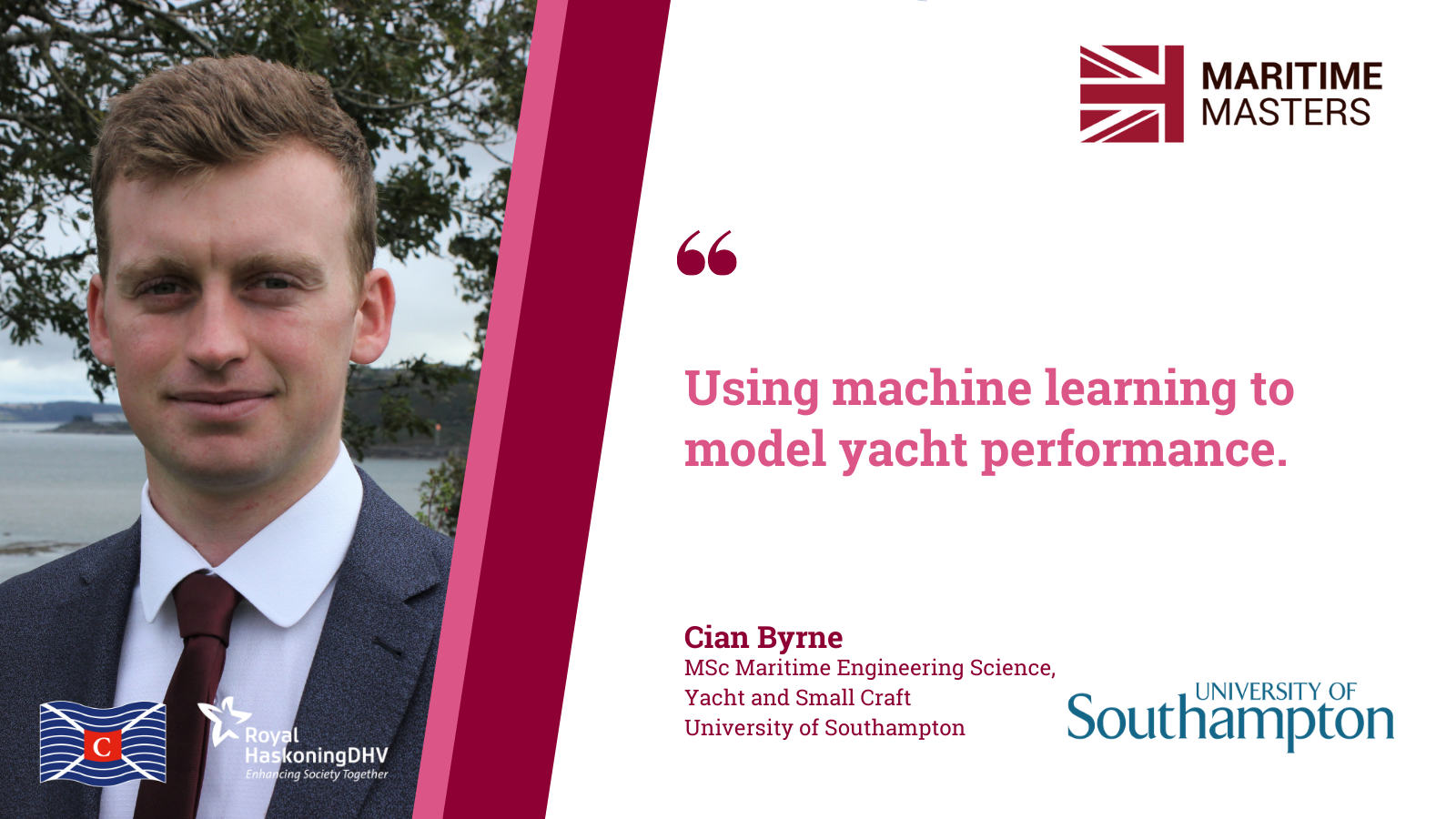Cian Byrne

Biography:
Cian Byrne is originally from Cork, Ireland. He graduated with a First-class honours BSc in Mathematical Sciences from University College Cork. Currently Cian is completing an MSc in Maritime Engineering Science – Yacht and Small Craft at the University of Southampton. Cian has a strong sailing background having won numerous medals at Irish, UK and European championships in various sailing classes from single handed dinghies to fully crewed yachts. Following graduation Cian hopes to work within high performance sailing teams seeking to gain a competitive advantage through the use of data analysis.
Introduction to research:
Modelling a yachts motion and predicting its speed in various different environmental conditions is extremely important in the sport of sailing. Current methods of Velocity Prediction Programs (VPPs) either suffer from large inaccuracies or involve accurate calculations that are too computationally intense for most applications. The focus of this project is to use data to improve upon the existing methods of yacht performance predictions. Advances in machine learning and data gathering capabilities provide a unique opportunity to analyse and improve on the existing models.
This project used unsupervised machine learning to classify real sailing data into categories such as “Upwind”, “Maneuvering” and “Not-Racing” with 93% accuracy. Different machine learning models were then applied to the racing data to learn the performance of the yacht. This method has reduced the modelling error by 66-80% compared to classic VPP’s.
What is your interest in or the practical applications of this research?
As a high performance sailor this research will help me to win races. High performance sailing teams and amateur teams alike can use this type of modelling methods to improve decisions on which angles to sail as well as which sails are most effective in a given set of conditions. This type of research could greatly improve the accuracy of target speed and target heading currently used by sailing crews when racing. Changing to a data based modelling system could greatly improve the performance of sailing yachts.
Why did you choose maritime as your area of study and research?
I have been lucky to have grown up overlooking Cork Harbour along the south coast of Ireland. Cork is an area steeped in maritime history being both the last port of call of the Titanic and also home to the oldest yacht club in the world. I have been an active member in said yacht club since the age of 8 and have been honoured to represent my club and country at numerous World and European sailing championships. Choosing to apply my background in mathematics to the more practical area of maritime engineering has allowed me to combine my passion for sailing with my academic skills. The latest advances in high performance sailing such as within the Americas Cup have progressed the sport towards the complexity of Formula 1 racing. I believe that this discipline will continue to evolve at a rapid pace making it an exciting sector to be involved in.
